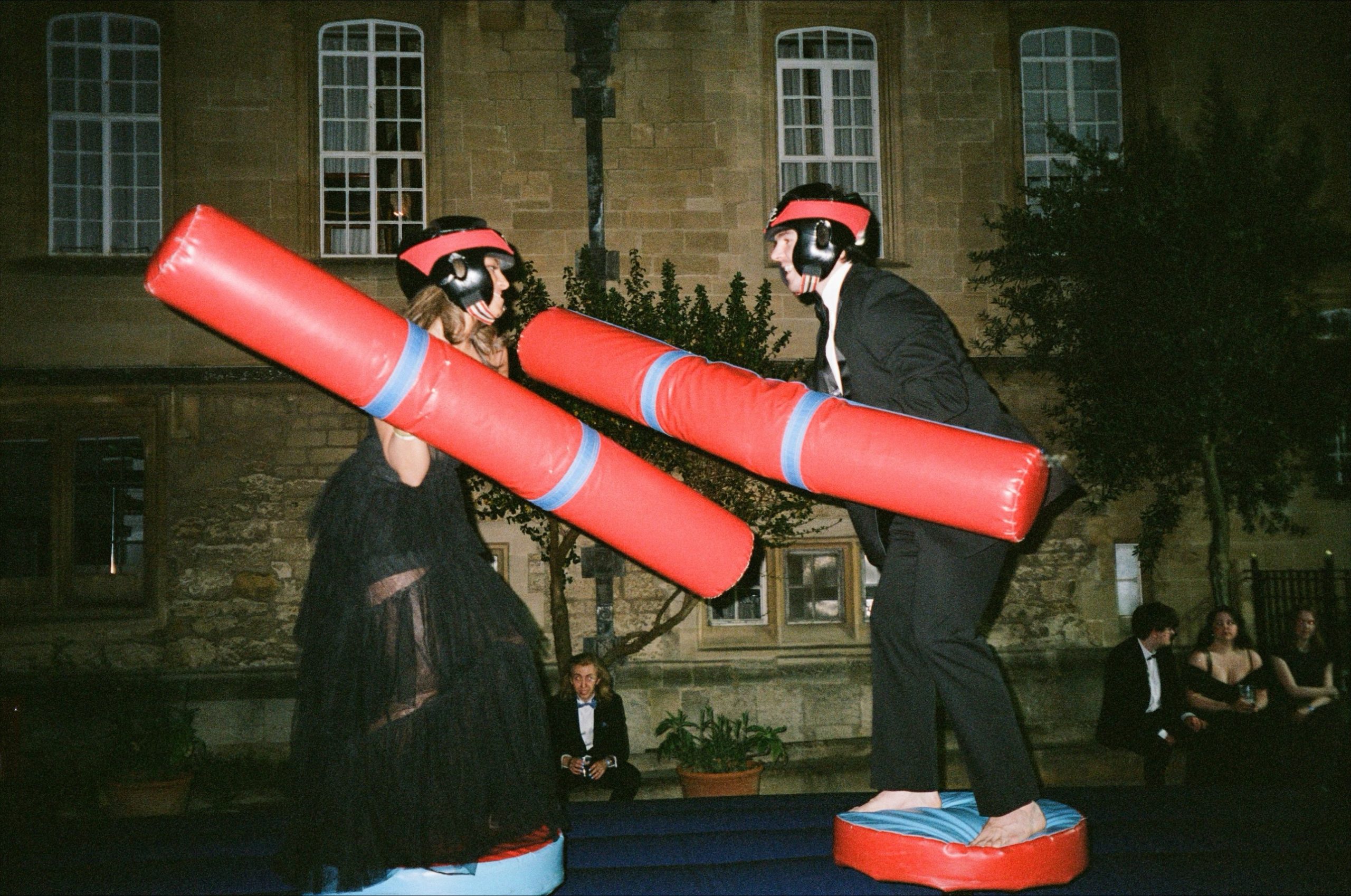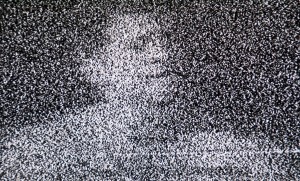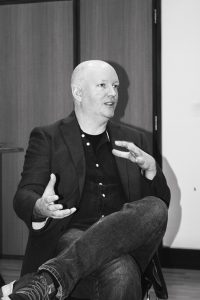Old life in Oxford
by Ila Kumar | June 7, 2024

Many times, I have been told by people older than me the following advice: “To be a good writer, you need to go out into the real world and experience life.”
I was sitting in an auditorium during my first semester at university, listening to a well-known, old and whiskered writer, when he said exactly this in response to a student asking him if he had any advice for uni kids who want to write. One year later, I found myself exposed to the same advice when a younger writer, faced with a similar question, informed the audience that we should “write what we know.” She could claim this wisdom because she’d previously told us how she had a minimum-wage job working at a poultry plant in Missouri, sawing and slicing chicken for meal deals. Horrified by the conditions and energized by the experience, she came out of Purdin a vegan with a new novel. A few weeks after that, I fainted in the shower in my dorm and had to go to the hospital. Maybe trying to distract me from the pain, the doctor asked me what I wanted to do after university. I told her I wanted to be a writer. While stapling the lower left side of my head back together, she told me that the most important thing I could do was to get out there and experience life. In fact, she was working on a book and had plans to quit medicine later this year to get an MFA. Long ago, she had decided that if she was going to be a doctor, she would be the most literary doctor in America.
It can be difficult to conceptualise that what is considered “real”–strenuous jobs, or the distracting paths of failed, libidinous love–could one day lead to success in words, grammar, and graceful sentences. After one of these talks, a boy named Jacob in my creative writing class told me that his parents are not falling into debt for him to sit in a lecture hall and have somebody tell him that he should consider working in a warehouse to become a better writer.
In one way, the process of writing seems to be about feeling someone else’s feelings, thinking someone else’s thoughts, but, at the same time it also involves cannibalising your relationships, secrets, and taking up the task of telling other people’s stories for them for a story that no one asked you to write. When trying to understand how writing can be both a selfish act and an exercise in recreation, memory, and bridging the empathy gap, I began to think about why I write, the peculiar circumstances that come with being a young writer, and how I can get better. Inevitably, I wondered if I’d truly need to experience the “real world” to be a good writer. And if so, what does the “real world” mean to them, and to me?
This is the paradox of trying to be a writer in university. You are young, inexperienced, and not exactly a legitimate resident in any genre of style. The scope of your material is limited, and the solution cannot solely be found in classrooms. It’s hard to believe that anyone should cut down trees for your words. The culture market is already saturated with people writing from the throne of testimony and paying attention to their experience. Social media is an obvious example, but the extent of our investment in lived experience ranges from the ability to go on Spotify and find playlists already made for every minor shift in mood or mundane task to the rise of what literary critic, Parul Sehgal, named the “trauma plot.” I am reminded of the viral screenshot from actor Jemima Kirke’s “Ask me a Question” Instagram stories, in which her reply to someone asking if she had any advice for unconfident young women was “I think you guys might be thinking about yourselves too much.” Yet, attaching meaning to sign and believing in the significance of feeling is not only a defining characteristic of being young, but it is also distinctive to being a writer. Document everything. Write it all down. These things feel even closer in university, where just living feels like stepping onto water lilies—there is no stable place to land, no one is at ease. Every hour something new is learned and unlearned.
I am in my junior (third) year of college, studying abroad at the University of Oxford. I came here without knowing the Latin roots of any words, and a fake ID from Illinois still at the bottom of my purse. There are a lot of old buildings here; they make you feel simultaneously tranquil and entitled when you’re inside them. Work is both boring and stressful. Roommates are not a thing. I live alone. I have two hours of tutorial every week, one hour for each course. Other than that, my days are completely my own. The time I don’t spend thinking about feeding myself or going clubbing has veered inexorably towards trying to write better.
Earlier this year, a tutor leading a Virginia Woolf course, told me if I wanted to make my essays sound more academic; I shouldn’t fear using “clunky language.” And so, part of this journey has involved learning about the inadequacies of language. As Virginia Woolf put it, “The urgency of the moment always missed its mark. Words fluttered sideways and struck the object inches too low.” There are those days that are bright and lit up when you think you see everything clearly and you feel like you are standing alone on the crest of the wave. There are others when you feel like you are thrashing around in life, getting spit out onto a course and dry shore, or you feel submerged underwater a lost creature in a dark room of a distant city, and while the earth turns slowly on its axis you are still just sitting there, groping for one, good thesis sentence to be your banister in the dark.
There are also times when, no matter how precise you try to be in your writing, no matter how exacting you are, you just can’t get it right.
But sometimes you do. And this became apparent after I introduced my friends at Oxford to a game called “Metaphor.” The premise is that someone thinks of a person, and the rest of the group asks metaphorical questions to guess who it is. One night we were playing, and our one British friend, Freddy, had Agatha in mind. Agatha was from L.A. She was interested in drama, head of the Shakespeare society at her college in Massachusetts, Mount Holyoke, and was at Oxford on her year abroad, studying Chaucer. Agatha always wore patent leather platform heels to go clubbing and fell many times on the cobblestone streets (but never hit her face). Her order at Wetherspoons was an espresso martini. She’d hold it delicately between her thumb and forefinger, with her pinky slightly splayed out to the side, as if she were sitting on a Parisian rooftop, not at a dingy chain on the high street. For this round of the Metaphor, the question was, “If this person were one of the five love languages, which language would they be?” I don’t remember Freddy’s answer, but it led to Agatha telling us that she is in an open relationship with a woman back in America named Sarah-Elizabeth. More importantly, Agatha was, in that moment, at odds with Sarah-Elizabeth because Agatha likes to have sex a lot and with many rotating partners. “I’m very prolific,” she said.
And just for a second, it really was like Agatha was a famed author. Not only did I understand exactly what she was trying to communicate on the surface, but through her unexpected word choice she swiftly revealed so much about her interior character, the way she saw herself in the world, and the way she wanted others to see her. Agatha’s words had fluttered sideways, but she struck the object right at its heart.
For me, this became an example of how everyday life—this amorphous, often unartful thing—can become the made, considered, literary thing. Agatha’s creative decision to call herself “prolific” instead of “promiscuous” or “sex-positive” was not just a funny moment that occurred between new friends, but a momentary flourishing of style and character. Agatha showed me that if you are looking at things a certain way, you don’t need to travel far to see that your life is already full of material, waiting for you to make it into a story.
Still, I remained jealous of my other friends who were studying abroad in cooler places and traveling to other countries on weekends. It seemed like they were following the aforementioned advice to get involved in the muck of the real world. I don’t know if I would consider Oxford the “real world,” but there are tangible ways this place represents factions of our world and how they operate. Ideas about inequality and influence, values of tradition and independence are always being negotiated as boys kill swans for their hearts to get into secret societies; when people like Ben Shapiro are invited to speak at this university that claims to be on the cutting-edge of academia; as people on the Facebook post about spotting Greta Thunberg in the club.
I could not escape the feeling of being trapped in a cul-de-sac of useless essays about abstract ideas. It would be difficult for me to recount anything I’ve said during a tutorial. Once I had figured out that these books are far bigger than any of the meanings I or experts prescribe to them, my attention turned to something much more pragmatic: I hoped these sentences sank into my subconscious. Instead, I could tell you about the gothic, unfeeling view outside my window, that sad feeling of mozzarella sitting in my stomach—the aftermath of eating British pizza–and the way my tutor chews on his pencil before he corrects me.
It was in this moment when I understood that this appetite for experience, how badly people tell you need it, and then the doubt fills you when you think you have made a misstep—is just part of being young. And it these moments that we turn to the margins. What I mean is that writing is about experience as much as it is about imagination—learning to control the vastness of the world by uncovering stories in the periphery. Mary Gaitskill wrote in her novel, This Is Pleasure, that life is too big for us, which is why we invent stories. Often, the most revealing parts of life turn out to be within the ‘small’ moments rather than the obvious, ‘important’ experiences. Without the sprawls of red pen on the margins of your work, your writing would be incomplete and in truly recognizing your lived experience, life always exists more fully and surprisingly in the periphery.
Life flourishes in the passing kindness of a stranger, the nice boy standing quietly corner, and the way your dad wakes up before anyone else to turn on the heat in the house. It is not necessarily wasteful to seek wild and sensational experiences, to do things for the sake of doing them. But I am not convinced that, at twenty, anyone could operate as an indestructible, human sponge of experience. Your life is real—the concern is not about whether you need experience to write, because, in some capacity, you already have that and for as long as you live, will continue to gain more. Writing is more about creating a project for yourself, then doing what you can to gather the material—the experiences and knowledge—that can be written about. To be a writer, to hopefully, one day, physically hold your sentences in your hands is about both representing the vastness of the world but also noticing and uncovering the smaller stories in the margins of your own, everyday experiences. You don’t need to search far to write about life, get it wrong, and write about it again. But if I knew that for sure, I wouldn’t have needed to write this.∎
Words by Ila Kumar. Image courtesy of Ila Kumar.




